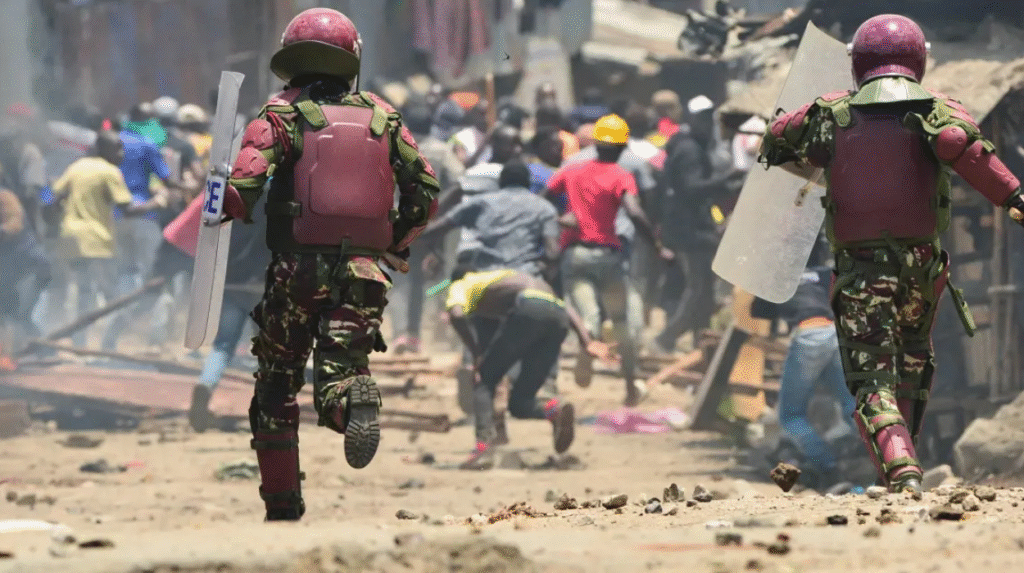Kenyan President’s Bold Directive Amid Violent Protests
In response to escalating violence during recent protests, Kenyan President William Ruto has taken a firm stance, directing law enforcement to use decisive measures to restore peace. Ruto emphasized that the government cannot allow sponsored chaos to jeopardize businesses and endanger lives.
Background on the Protests
The protests were ignited by growing public discontent over various issues, including alleged corruption and the rising cost of living. The unrest has claimed the lives of at least 11 individuals, with reports indicating that those injured were often victims of gunfire.
Government’s Response
Ruto stated, “We will not stand aside and watch the economic fabric of our nation being torn apart by rioters. The police must take action to ensure the safety of all citizens.” His remarks highlight the government’s intolerance for violence, as authorities strive to maintain order in the capital, Nairobi.
International Context and Aid Implications
Kenya’s unrest comes at a time when various international dynamics are influencing political stability in Africa. In particular, US aid cuts are feared to impact neighboring countries, potentially resulting in increased health crises, notably in battling HIV infections.
The Broader African Landscape
As unrest unfolds in Kenya, several other African nations face their unique challenges. The implications of recent US foreign policy changes, along with local governance issues, contribute to an increasingly complex geopolitical environment across the continent.
| Country | Current Issue | Government Response |
|---|---|---|
| Kenya | Violent protests over cost of living | Police authorized to take strong action |
| South Africa | Fear of increased HIV infections due to aid cuts | Intensive campaigns against HIV/AIDS |
| Nigeria | Political realignment ahead of elections | Formation of new alliances |
Conclusion
The situation in Kenya serves as a critical reflection of the struggles facing many African nations. As governments grapple with public discontent and external pressures, the balance between maintaining peace and addressing citizens’ grievances becomes ever more vital.


